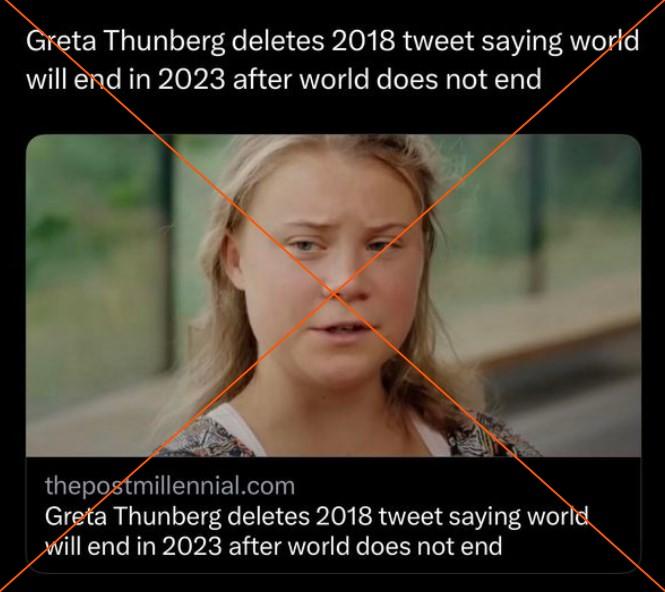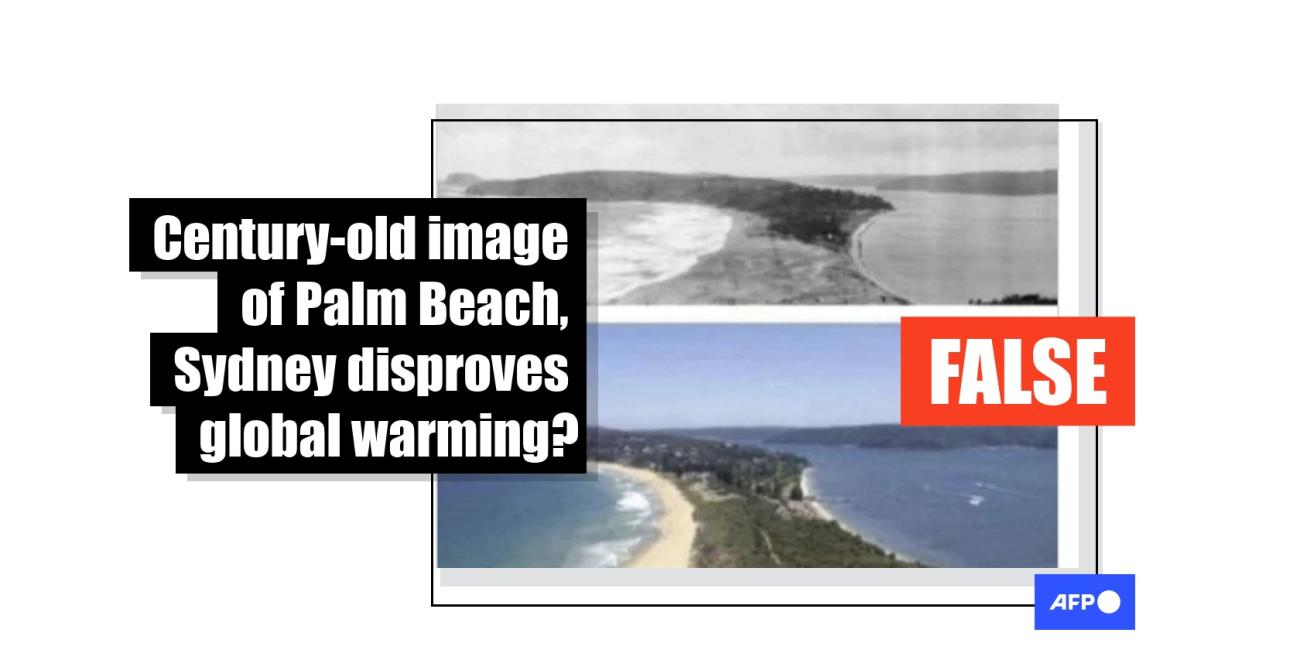
Greta Thunberg targeted with misleading headlines about deleted tweet
- This article is more than two years old.
- Published on March 17, 2023 at 17:33
- 2 min read
- By Roland LLOYD PARRY, AFP USA
"Greta Thunberg deletes 2018 tweet saying world will end in 2023 after world does not end," says text in an image shared March 13, 2023 on Facebook and Instagram.
The posts quote a headline published March 11 by The Post Millennial, a conservative Canadian website. The article accumulated more than 1,400 shares, according to CrowdTangle, a social media insights tool.
The story cites a June 21, 2018 tweet from Thunberg that said: "'A top climate scientist is warning that climate change will wipe out all of humanity unless we stop using fossil fuels over the next five years.'"

Thunberg, then aged 15, published the post two months before she started the school pupils' strike in Sweden that put her in the global spotlight.
The tweet has since been deleted. But a version archived March 7, 2023 shows Thunberg was quoting a February 2018 article from Grit Post, a now-defunct liberal website in the US.
The story cites James Anderson, an atmospheric chemist at Harvard University who is credited with discovering the Antarctic hole in the ozone layer.
Grit Post reported on a January 2018 speech in which Anderson said there was a five-year timeframe for transforming industries to halt pollution, remove carbon dioxide from the atmosphere and reflect sunlight from the Earth's poles.
"The chance that there will be any permanent ice left in the Arctic after 2022 is essentially zero," Anderson said, according to articles from Grit Post and Forbes, an American business magazine.
The stories did not quote Anderson saying the world would end within that timeframe.
AFP reached out to Thunberg for comment, but a response was not forthcoming.
Arctic sea ice decreasing
The US National Snow and Ice Data Center said March 15 that the annual maximum extent of Arctic sea ice was the lowest since satellite records began.
A 2018 study found "permanent ice" or "multiyear ice," which does not melt in the summer, had decreased by more than 50 percent from 1999 to 2017. A 2022 study concluded the amount of ice lost quadrupled from 1997 to 2021.
Scientific research reviewed by the Intergovernmental Panel on Climate Change (IPCC) has pointed to 2030 as a key timeframe to limit global warming to 1.5 degrees Celsius and avoid the worst effects of climate change.
AFP has fact-checked other claims about climate change here.
Copyright © AFP 2017-2026. Any commercial use of this content requires a subscription. Click here to find out more.
Is there content that you would like AFP to fact-check? Get in touch.
Contact us




